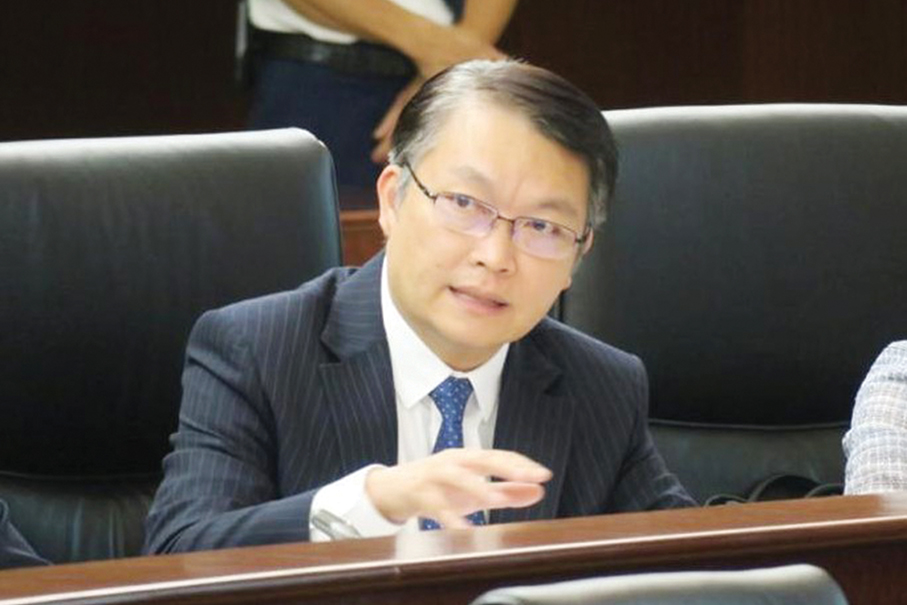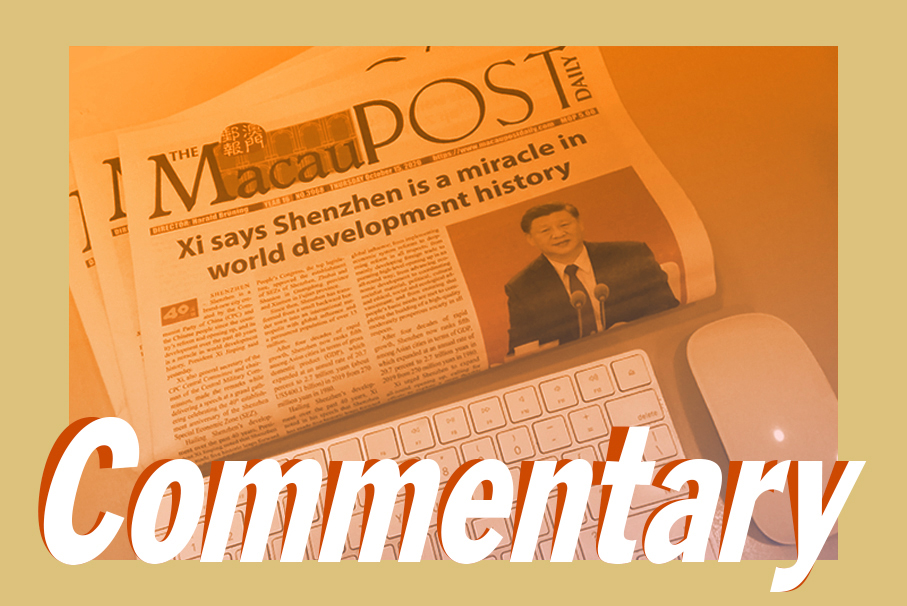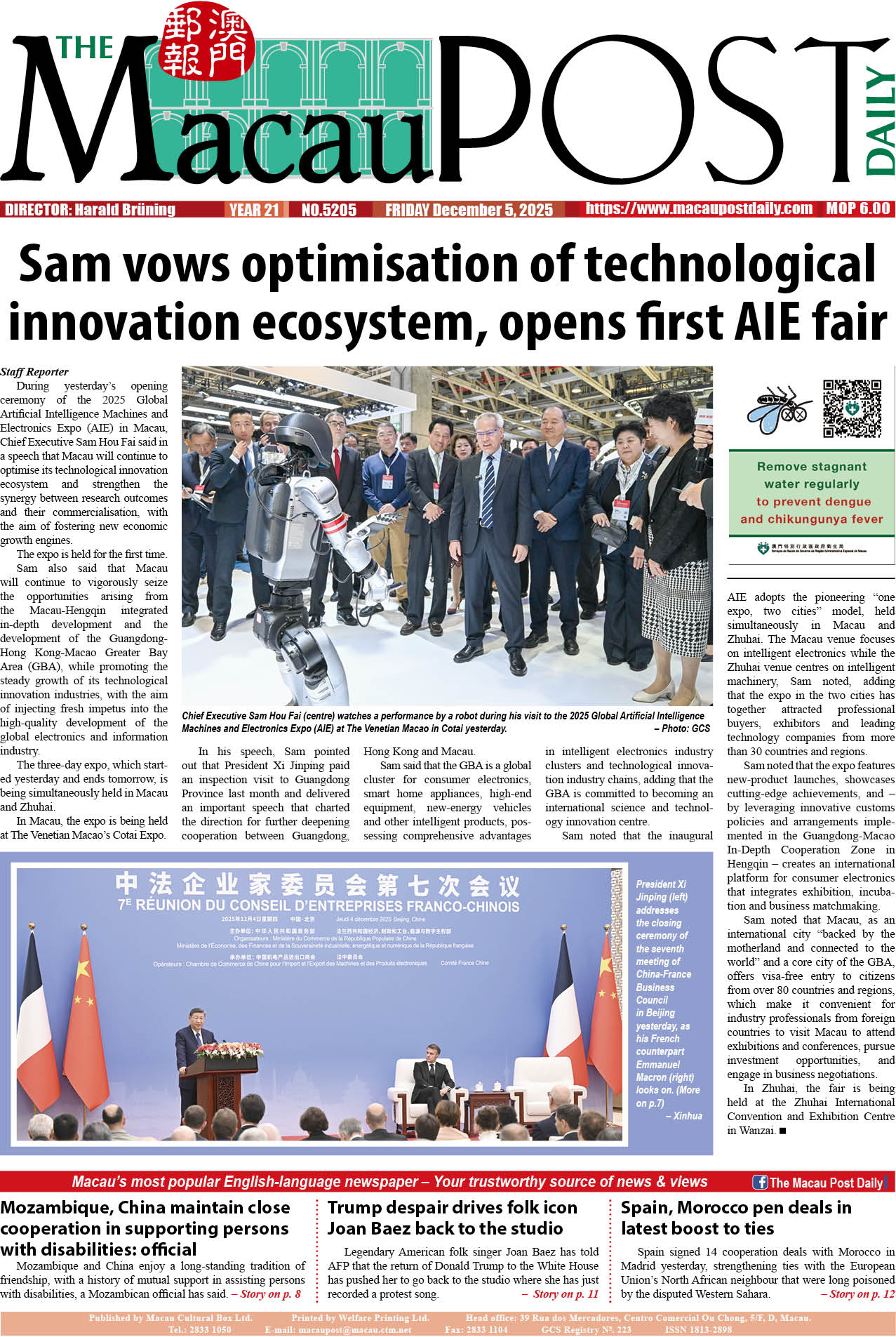The Legislative Assembly (AL) yesterday unanimously passed the outline of a government-initiated bill that proposes to raise Macau’s statutory minimum wage to 34 patacas per hour from the current 32 patacas an hour, an increase of 6.25 percent.
The implementation of Macau’s overall minimum wage system started on November 1, 2020. Since then, all employees in the private sector, except domestic helpers and those with disabilities, have been covered by a statutory minimum wage of 32 patacas an hour – or 256 patacas a day, or 1,536 patacas a week, or 6,656 patacas a month.
Secretary for Economy and Finance Lei Wai Nong introduced the outline of the bill, which proposes amendments to the city’s overall minimum wage law, during a plenary session of the legislature’s hemicycle yesterday.
After yesterday’s passage of its outline, the amendment bill will be passed to the legislature’s 3rd Standing Committee for an article-by-article review, after which it will be resubmitted to another plenary session for its second and final debate and article-by-article vote.
Minimum monthly wage to exceed 7,000-pataca benchmark
The amendment bill proposes to raise the statutory minimum wage to 34 patacas an hour – or 272 patacas a day, or 1,632 patacas a week, or 7,072 patacas a month, effective from January 1 next year.
The overall minimum wage law requires the government to carry out its first review of the amount of the statutory minimum wage two years after its implementation, after which the government will have to review the amount every two years.
Lei noted during yesterday’s plenary session that the government completed its first review of the minimum wage amount earlier this year, which assessed the minimum wage’s implementation between November 1, 2020 and October 31, 2022.
According to Lei, the government’s first review of the minimum wage assessed the impact of the minimum wage’s implementation on employers and employees alike and on the performance of the city’s ongoing economic recovery.
The government is now proposing to raise the city’s statutory minimum wage to 34 patacas per hour after considering the review’s findings, consulting representatives from the labour and business sectors, and striking the right balance between the improved protection of workers’ rights and benefits and the possible impact of a minimum wage hike on the city’s business environment and on consumers’ ability to adapt to the induced price hike, the policy secretary said.
If the amendment bill is passed by the legislature in its second and final reading, the new minimum wage will take effect on January 1 next year.
After completing its first review of the minimum wage amount earlier this year, the government presented its proposal of raising the amount to representatives from the labour and business sectors during a meeting of the Standing Council on Social Concerted Action in July, when it was proposing to raise the amount to between 34 and 36 patacas per hour. The council is a government-appointed consultative body tasked with advising the government on its labour policies.
However, the government-drafted amendment bill, the outline of which was passed by lawmakers yesterday, proposes to raise the minimum wage to just 34 patacas an hour.
Review process duration
As the minimum wage law requires the government to review the minimum wage amount every two years, Lei noted that the government is scheduled to start its next review of the amount on November 1 next year, which will assess the minimum wage’s implementation between November 1, 2022 and October 31, 2024.
During yesterday’s plenary session, several lawmakers said that it took the government a relatively long time to complete its first review of the minimum wage amount after launching it, because of which a possible minimum wage hike could not fully keep pace with the city’s latest socioeconomic development.
Lei replied that the government is aware of some views from civil society calling for a shorter review process, underlining that the government’s minimum-wage review would, however, require the collection of numerous data and information. But the policy secretary was quick to add that the government would study the possibility of shortening its review process.
Before the city’s overall minimum wage got off the ground on November 1, 2020, its statutory minimum wage system only covered two occupations, namely cleaners and doormen employed by the property management sector, which started on January 1, 2016 when their minimum wage was 30 patacas per hour.

Secretary for Economy and Finance Lei Wai Nong addresses yesterday’s plenary session in the Legislative Assembly’s (AL) hemicycle. – Photo courtesy of TDM









